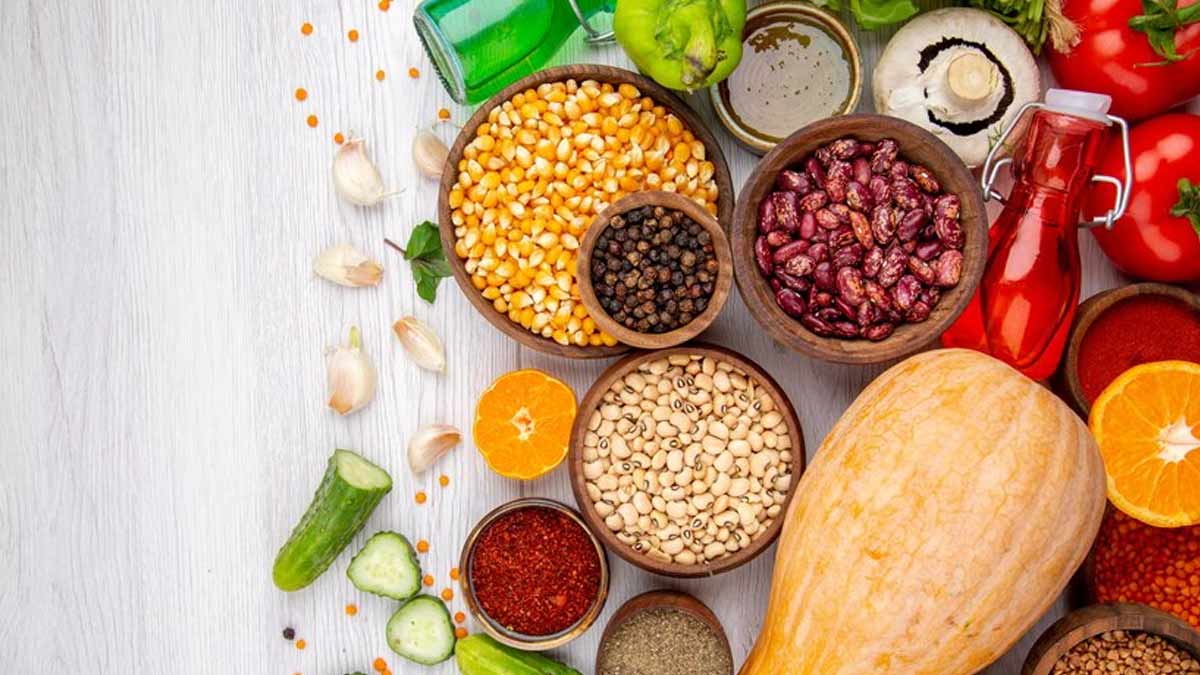
Platelets, or thrombocytes, are small, colorless cell fragments in the blood that are responsible for the process of clotting the bleeds. Whenever a blood vessel gets damaged, it sends a signal to the platelets, which then rush to the affected area to fix the damage. However, this process can get disrupted if the platelet count drops significantly.
The condition where the bone marrow is making fewer platelets or the platelet count drops for any other reason is called thrombocytopenia. It can lead to bruises, uncontrollable bleeding from cuts, and serious internal bleeding in the worst-case scenario. However, it is possible to increase the platelet count naturally by consuming legumes, whole grains, unprocessed fruits and vegetables, etc.
Whole Foods To Increase Platelet Count Naturally
Here are the ten best whole foods that can help you increase your blood platelet count naturally.

Pomegranate
Pomegranates are known for their anti-inflammatory, antioxidant, and immunity-boosting properties. One can incorporate them into their diet in the form of fresh juice, salads, smoothies, or breakfast bowls.
Pumpkin
Consuming fresh pumpkin juice twice or thrice a day will go a long way in the development of platelets. Pumpkin is a rich source of Vitamin A and facilitates the regulation of the proteins that are produced by the cells in the body.
Indian Gooseberries
Indian gooseberries, better known as Amla, have proven to improve platelet function in people who got infected with dengue. It facilitates the production of platelets and also boosts the immune system. One can consume it as a whole or in the form of pickles or homemade jams.
Also Read: Maintaining Thyroid Health With Diet
Raisins
Consuming raisins on a daily basis has proven to facilitate RBC and platelet growth, as it is a rich source of iron. Iron deficiency can lead to anemia and low platelet count, which can be dealt with by eating iron-rich foods. One can add soaked raisins to their morning smoothies, or simply have it with a glass of milk.
Papaya and Papaya Leaf
Papaya and its leaves are believed to increase the platelet count, especially in patients suffering from dengue. It has antioxidant, antibacterial, and anti-inflammatory properties. Along with consuming the whole fruit, one can also boil the papaya leaves and drink the extract twice a day to expedite the effects.
Fish and Fish Oil
A high-protein diet is recommended when it comes to increasing platelet count naturally, hence the doctors suggest that patients with low platelet count consume lean meat and fish. Fish oil supplements can also be taken to deal with the issue, but it is advised to consult a medical professional to establish the correct dosage.
Vitamin C-Rich Foods
Vitamin C has powerful antioxidant properties, which help counter the free radicals in the body that can cause damage to the platelets. It is also said that the regular consumption of Vitamin C-rich foods facilitates the production of platelets in the body. Foods like oranges, kiwis, broccoli, spinach, lemons, etc. can provide the body with the required Vitamin C.
Fresh Milk
Fresh milk is a rich source of calcium, Vitamin K, Vitamin D, and more. It is advised to incorporate fresh milk in your daily diet as the deficiency of Vitamin K prevents your blood from clotting and in the worst-case scenario, leads to uncontrollable bleeding. One can either consume a glass of it in the morning or evening or incorporate it in smoothies, desserts, and breakfast bowls.
Also Read: Perfect Diet Chart For Weight Loss
Vitamin B12-Rich Foods
Vitamin B12-rich foods have proven to facilitate the production of platelets in the body. Not consuming enough Vitamin B12 can lead to low platelet count and weak immunity. Eggs, milk, cheese, yogurt, etc. are good sources of this nutrient, which you can incorporate in your wraps, salads, and more.
Leafy Vegetables
Leafy vegetables like kale and spinach are good sources of Vitamin K and are recommended when your platelet count in the blood is low. The deficiency of Vitamin K leads to delayed clotting, which is an inconvenient situation for the body and its healing process. Hence, it is advised to consume a healthy amount of Vitamin K in the form of green leafy vegetables.







